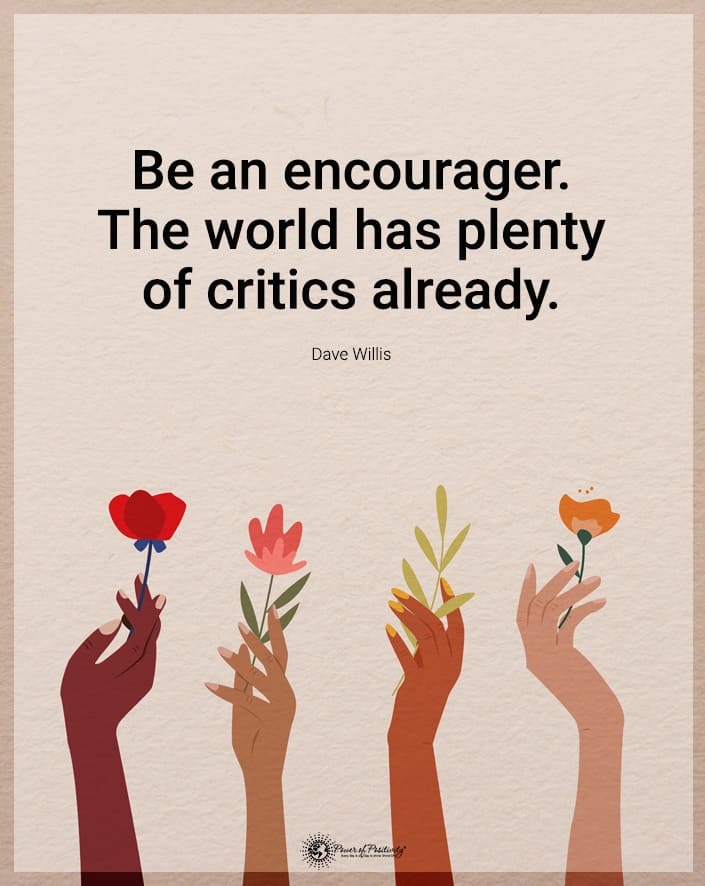Words seem like such a given in life that most people don’t even realize how powerful vocabulary can be. Of course, most people realize that words are essential for communication, but they do more than that. They aren’t just a way to tell someone else what you think. Your vocabulary and choice of words can also affect how you feel, not just what you communicate externally.
Words convey both emotions and meaning. That’s why people enjoy reading poems and stories. Because certain words make them feel happy, others feel sad, joyful, lost, or euphoric. But words can also fundamentally change how you view the world around you and even yourself. This is clear if you look at what words other people use.
A kid raised by parents who always called them dumb will believe they are dumb. And they’ll always use derogatory words to describe their intellectual capacity. Someone who always uses words with a negative connotation will generally be more harmful. But removing certain words from your vocabulary can help you increase positive thinking.
The Connection Between Your Vocabulary and Positive Thinking
Positive thinking is probably the essential component of a positive attitude towards life. And, contrary to how it sounds, positive thinking isn’t about being ignorant of the negative aspects of life. It’s not about seeing everything in shades of pink and believing everything is just rainbows and butterflies. Positive thinking is about being optimistic and getting the best outcome out of every situation. And according to many experts, positive thinking is rooted in positive self-talk.
The endless stream of thoughts constantly going through everyone’s heads is known as self-talk. These thoughts are often automatic. For example, if you see a flower on the street, you’ll probably see its name in your head. You’ll probably think of the word house if you see a house. And if you look at yourself in the mirror, your brain will probably fire off a string of adjectives to describe how you see yourself.
An overly negative person who has always been surrounded with negative words will instantly think that they are ugly. Or maybe they’ll believe they are fat, their face is uneven, their teeth are crooked, or a million other harmful things. This perception can happen with anything, not just body appearance. It can be about your intelligence, your personality, and more. This type of self-talk arises from misconceptions you create or preconceived ideas you have yet to get over.
But the other part of self-talk comes from logic and reason, so you can permanently rewire your brain to be more positive. Positive thinking has many effects on someone’s health. For example, optimistic people may live longer. That’s mainly because they have lower rates of depression and lower levels of distress. Aside from improving your general psychological well-being, positive thinking can impact your physical health. Optimistic people generally have better resistance to illness and better cardiovascular health.
Thus, optimism reduces the risk of death from cardiovascular disease and stroke. But it also reduces the risk of death from cancer, respiratory conditions, and infections. Additionally, positivity helps you improve your coping skills and stress management skills. This seems to be because positive thoughts affect your mentality and psychological condition. But it’s also been shown that optimistic people are usually the ones who have healthier lifestyles. They have better diets, work out more, and typically have a better work-life balance.
But even though being positive has clear benefits, it’s not that easy to change your whole vocabulary. If you’ve grown up around negative people and have internalized negativity, it can be a challenge to replace certain words. But that doesn’t mean it’s impossible. There are always ways to change your mentality and your vocabulary.
How to Remove Negative Words from Your Vocabulary
Stop allowing these phrases and habits to creep into your head or out of your mouth.
1. Be Aware of Your Negative Self-Talk
Most people use negative words when they think without even realizing it. They believe that negative words aren’t that nig of a deal. But it’s also because most people internalize these words, and they don’t even realize how negative they are. It’s hard to stop and listen to your inner voice, especially when you’re always on the move, always busy.
One of the first things you need to do is designate some time in your day when you don’t have any responsibilities, and you can review your thoughts. But you can even take time to listen to your thoughts throughout the day. Instead of listening to music while driving, you can go in silence and allow yourself to be aware of your thoughts.
Or, instead of watching videos while you eat, focus on what’s going on in your head. Listening to what your inner voice is telling you will make you more aware of your vocabulary. You might catch yourself being negative in many instances. You would have never thought you’d be negative. This makes you more aware of your language and can help you avoid negativity.
You can even keep a thought log if you think that will be a better incentive to change your vocabulary. Keep a small notebook with you and write every time you negatively describe yourself. You can even record what triggered that thought. That way, you can tackle your vocabulary issue from the root.
2. Stop Blaming Yourself by Using Negative Vocabulary
Most people who engage in negative self-talk are always blaming themselves. And even if they’re not directly blaming themselves, they’re probably catastrophizing or criticizing themselves. Even if you make genuine mistakes, you still don’t need to blame yourself. Just because you stumbled a little, that doesn’t mean that the world will end.
And it doesn’t mean that you are a terrible person or that your skills are subpar. But there’s so much pressure on people to be perfect that most of them forget that making mistakes is a normal part of being human. Being optimistic might be something you can do while your life is going smoothly. But it’s much harder to do when your life isn’t going quite as planned.
Because of this, you need to remove phrases like “it’s all my fault” or “I messed everything up” from your vocabulary. Being self-critical never helped anyone, contrary to what society seems to think. A self-critical person will always point out what’s wrong with themselves, but they won’t have a plan to better themselves. This way, you will destroy your confidence and motivation.
But when you accept your humanity, that’s when you can take responsibility without tearing yourself down. Don’t play the blame game because the truth is, the blame doesn’t matter in most cases. It doesn’t matter if you failed because someone else distracted you. You can still learn something from the whole situation. You can learn how to tune out better people who want to make you lose focus.
That being said, you can still learn to love yourself. One way to do that is by incorporating positive phrases into your vocabulary. Things like “I can still do it” or “I can overcome this hurdle” will lift you.
3. Shift the Perspective
When it comes to positivity, the key is learning how to frame everything in a way that can benefit you. Objectively, missing a deadline is a negative thing. But an optimist will always look for the silver lining. Even though you missed that deadline, now you can start working on your time management, which will help you in every project you tackle.
And the same goes for self-talk. If you feel the urge to criticize yourself for something, look for the silver lining. Instead of thinking, “look how fat I am,” focus on the features you like. Think, “wow, my eyes are beautiful” or “my hair is nice and soft.” And if you are unhappy with something about yourself, don’t beat yourself up over it. Just try to devise a plan to change that you think you don’t like.
The most important thing you need to understand is that negativity will never help you, no matter who it’s directed towards. If you are negative towards someone else, you risk ruining their day or crushing their confidence. If you always talk yourself down, you will lose your motivation, and you even risk developing depressive thoughts.
But when you try to stay positive and to always talk kindly, you can start becoming a positive thinker. Just make an effort to shift your perspective over certain situations. For example, having a few extra pounds isn’t something to be ashamed of. Your body is your home, and you should cherish it no matter what. No situation is so bad that it requires you to be mean towards yourself.
Final Thoughts on How Removing Negative Words from Your Vocabulary Can Increase Positive Thinking
Many words people use daily carry more weight than it might seem at first glance. Words like “ugly,” “lazy,” and “stupid” are just some of the words that people use almost every day to describe themselves. And in most cases, they don’t even realize that they use them. Negative self-talk is something that most people have internalized, and they even think of it as usual.
Or, they don’t even have time to focus on their thoughts because of how busy people have become. They aren’t even aware of how negative they currently are and how changing a few words can make you much more positive. Becoming aware of what your self-talk looks like is the first step in changing it. Take some time to focus solely on your thoughts, even write down whenever you are being negative if you think that helps. That way, you can identify why you are harmful and what words you should change.
The second step is to stop blaming yourself and stop catastrophizing. Instead, take responsibility without being mean to yourself. It’s way better to motivate yourself than to tear yourself down. Lastly, it would be best if you worked on shifting your perspective and searching for the silver lining even in objectively bad situations. Going through these steps will help you become more positive. But what you need to remember above all else is that you need to stop criticizing yourself and start being kinder.

















 Community
Community

